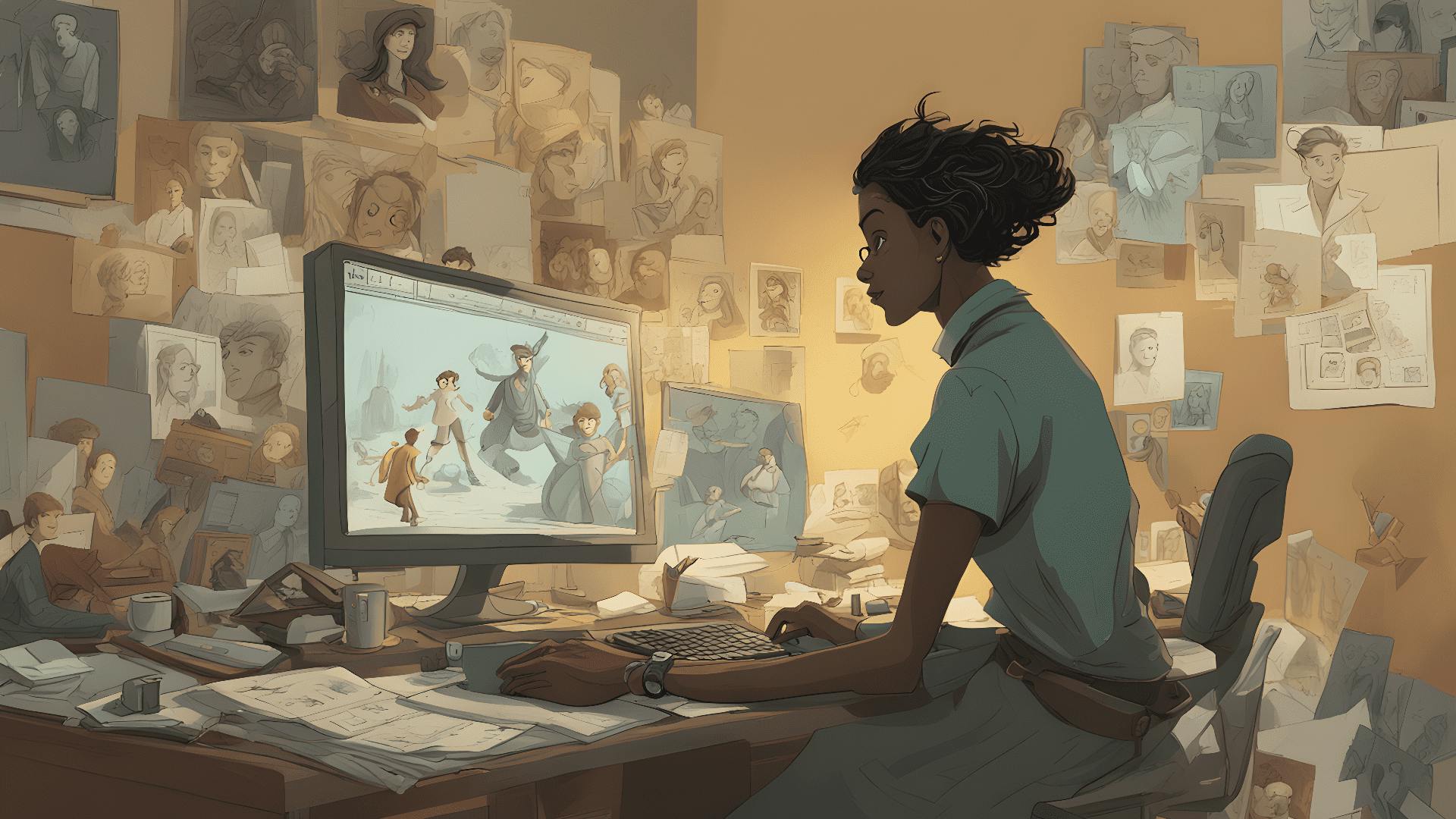Job: Animator

AI made with Peter Mohrbacher
An animator plays a crucial role in today’s media industry, from producing scenes in blockbuster films to crafting detailed animations for video games, commercials, and instructional videos. The beauty of an animation lies in its capacity to tell intricate stories without constraints, allowing for boundless creativity.
Key Responsibilities:
1. Design and Craft Animated Sequences: An animator isn't just about moving images; it's about conveying emotions, actions, and scenarios through the art of animation. This could mean everything from creating a heart-wrenching scene in an animated movie to designing an engaging character for a mobile game.
2. Develop Storyboards: Before the animation process begins, animators sketch out each key scene, often working with illustrators or storyboard artists. These storyboards serve as the animation's blueprint.
3. Collaboration: Animators rarely work in isolation. They frequently partner with directors, voice actors, sound engineers, and other team members to ensure that the animation aligns perfectly with other elements of the production.
4. Refinement: Post the initial draft; animators use feedback to refine their work, ensuring that the end product aligns with the vision of the project.
Skills and Qualifications:
- Technical Proficiency: Understanding and mastering several animation software programs are crucial. Whether it’s 2D platforms like Adobe Animate or 3D software like Maya, animators must be versatile.
- Artistic Vision: At their core, animators are artists. A keen eye for color, texture, and movement is essential.
- Attention to Detail: The difference between a good animation and a great one often lies in the minutiae. A subtle facial expression or the flutter of a leaf can change the entire mood of a scene.
- Time Management: Animation projects often come with tight deadlines. Being able to manage time efficiently is crucial.
Educational Requirements:
A bachelor's degree in animation, computer graphics, fine arts, or a related field is often preferred. However, some animators are self-taught, building their skills through online courses and personal practice. A strong portfolio is often as important, if not more so, than formal education.
Animators possess the magic to bring stories and concepts to life. In a digital age where visual content reigns supreme, their skills are in high demand across industries. Whether working in entertainment, advertising, education, or any number of fields, animators shape our understanding and enjoyment of the media we consume.